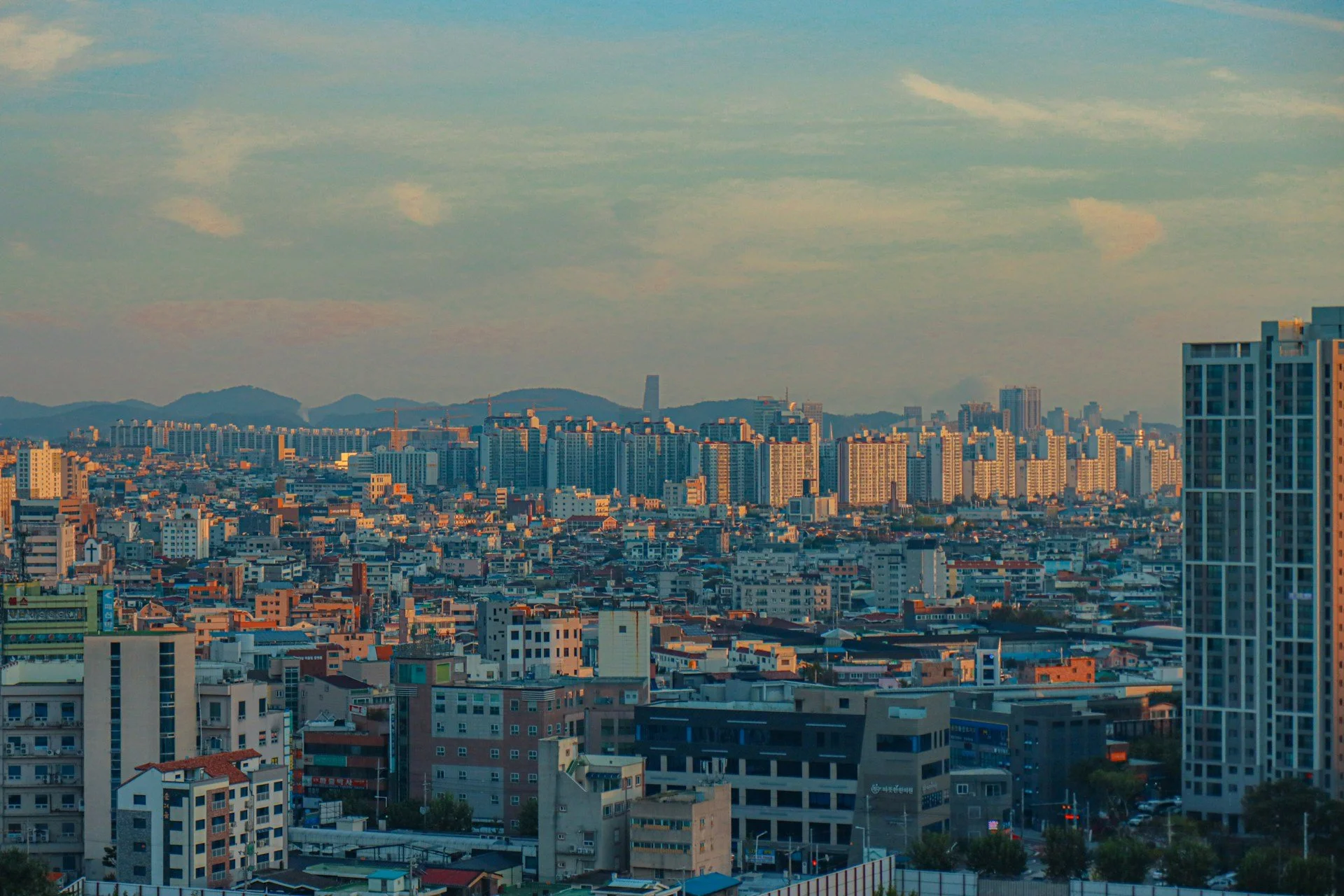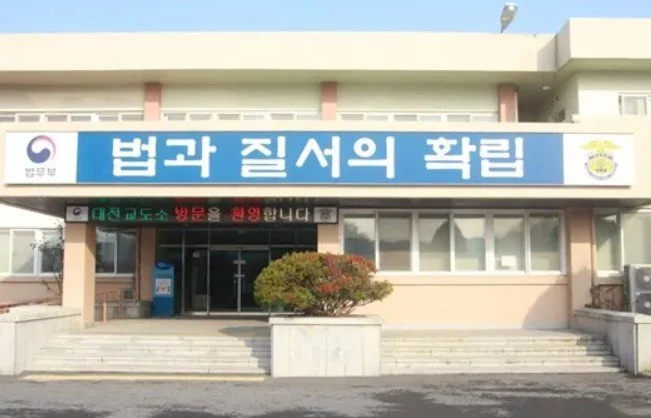Our work is rooted in a specific mission: helping and sustaining North Korean refugee women and their children. But on a recent trip to South Korea, one of our staffers was given a rare opportunity to see a side of the refugee experience we don’t often encounter—incarcerated North Korean refugee men in South Korea.
Our visit that day was to Daejeon Prison, the largest correctional facility in South Korea, holding an estimated 6,000 inmates. Our staffer was accompanying “Pastor Y”, a man who regularly traveled all over South Korea to visit eight or nine prisons throughout South Korea and meet with North Korean refugee men. Before entering, they stopped at a local store to buy several boxes of Choco-Pies—a small gesture of humanity for men living in a world of stark realities.
Daejeon Correctional Facility
Inside, we learned, life is contained and isolating. Men are housed four to six per room, and these other faces become their entire world for the length of their sentences. A small lifeline of grace is provided through another ministry, which provides North Korean inmates with what prisoners jokingly call "payday"—a monthly stipend of 30,000 to 50,000 KRW (about $25-$40) for snacks and toiletries. It’s enough to create excitement for recipients and their cell mates, who often receive the fringe benefits of this monthly gift.
In a small, cluttered conference room, our staffer and Pastor Y spent the next two hours meeting with three men, each carrying the weight of a journey that didn't end when they reached freedom.
Incarcerated North Korean Refugee Men
The first was a tall, remorseful man who took what ended up being a harrowing 20-day trek through China, Laos and Thailand (referred to as the “10,000 kilometer journey” which speaks to the total distance traveled from North Korea to South Korea) with his wife several years before. They had built a stable life in South Korea, with the addition of two sons, now 8 and 10. He found steady work and a community of North Korean soccer league. But one night, after a game and dinner, a single, regrettable decision to try drugs with the group led to a police bust. He now spends his days in jail, holding onto letters from his wife, sons, and even his former boss, who has promised to rehire him upon his release in October 2026. Every weekend, his wife and boys make the six-hour round trip to see him. He told us he begs them not to come, pained by the burden he has placed on them, but they never fail to show up—a testament to a love that survives prison walls.
Next, we met a young man of 20. He had arrived in South Korea at 14 with his sister, following their parents who had already defected and settled in South Korea. He spoke without a trace of a North Korean accent, a kid who seemed to have assimilated well. But he was serving a five-year sentence for acting as a drug mule. By other North Korean contacts, he had been sent to Cambodia to bring back a package, and the police were waiting for him the moment he landed at Incheon. He seemed like a good kid caught in a terrible situation, and he expressed his thankfulness that he was caught on his first attempt and had never used the drugs himself. The prison worker who monitored us remarked to all of us in that room that if he hadn't been stopped then, his life surely would have been ruined.
Finally, an older man of 45 sat before us, a deep chip on his shoulder. He defected first with the hopes of bringing the rest of his family once he had settled in South Korea. This man believes his wife and daughter may still be alive in North Korea, but he has no way of knowing. After arriving in the South, he paid the same broker who helped him escape to get a phone and money to his family. The broker vanished, and so did his hope. He spoke of the prejudice he faced for his North Korean heritage, which led to fights and, ultimately, his incarceration. He was preparing to serve an extra 90 days to work off the debt from damages caused in a bar fight—a debt paid at a rate of 100,000 KRW per day of added time. He mentioned he was looking forward to the work of a lawyer who promised a retrial, and Pastor Y’s concern was immediate. Recognizing the hallmarks of a scam, the pastor gently steered him away, providing him with a list of reputable churches and other ministries in South Korea, as trustworthy resources for looking into the validity of a retrial and even attempting to get information about his wife and daughter.
“I was in prison and you came to visit me. ”
As we met with each man, Pastor Y actively took notes including writing down the names and numbers of the men’s wives and children. It sounded like he had tried contacting one of the wives after his last visit three months ago without success, but he would try again. It was amazing to see that this ministry doesn't end at the prison gate. He visits the families, offers support to the wives, and helps care for the children left behind. It was effectively a family ministry that reached far beyond these incarcerated North Korean men. The choices these men made, whether out of desperation, foolishness, or trauma, created ripple effects that directly impact the women and children we serve. The trip was a reminder that the journey to freedom is complex, and for some, the greatest challenges begin long after they’ve crossed the border. While Crossing Borders is experienced in caring for women in difficult circumstances, it was eye opening to see firsthand a lesser known population of refugees, grappling with a different kind of imprisonment, and the quiet, crucial work being done to hold their families together.









